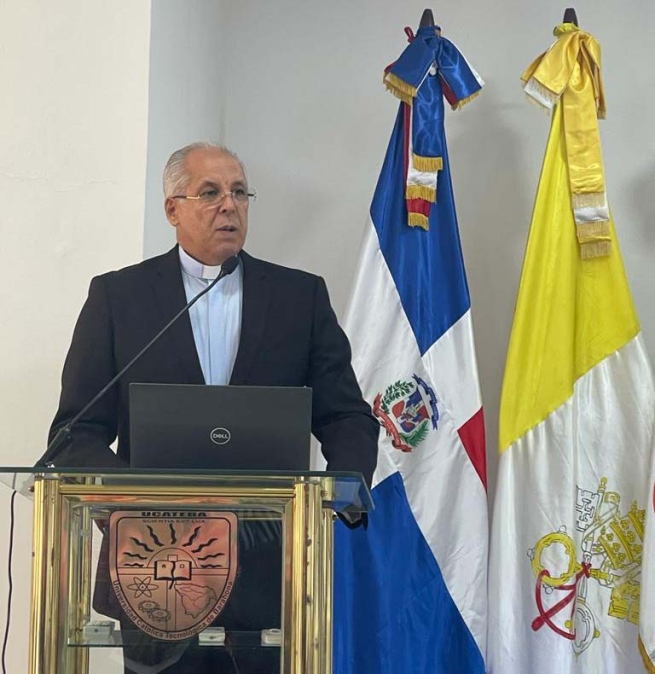For the occasion, Fr. José Pastor Ramírez, Provincial of the Salesian Province "St. John Bosco" of the Antilles, presented the Salesian bishop's humanistic, educational and pastoral vision. He also recalled the words of the current Bishop of Barahona, Monsignor Andrés Napoleón Romero Cárdenas, at the funeral of Monsignor Rivas on August 14, 2018: "He faced with courage and optimism the challenging task of starting with few priests, few parishes, few pastoral agents... But thanks to his charisma, vision and dedication, he embarked on this journey in the name of God. His passage in this diocese leaves a great harvest of new Christians, new communities, new parishes and strong social institutions that have contributed greatly to the development of the region."
Monsignor Rivas' Salesian humanism continues to bear fruit today, as it was he who laid the foundation and foundations of Pastoral Action in the Diocese of Barahona, with the creation of parishes and chapels. He was the promoter and mentor of the Vocations Ministry, which gave rise to the first diocesan priests. He can be considered a father of the spiritual, social, cultural and economic development of the region. Also during his years as a Salesian priest, he was a vocational promoter of Salesians in the country. He served as a formator of candidates for the priesthood, particularly as Novice Master.
He was also the creator of the "Fundación de Apoyo al Suroeste" (FUNDASUR), the ICATEBA, now UCATEBA, and peasant associations such as Lemba, as well as the ideologue of the Centro de Formación de Barahona (Center for the Formation of Peasants) in Barahona. He started, together with the Salesians, parochial schools, youth centers, pharmacies and medical dispensaries.
On the back of a mule, in a jeep or on foot, in the hills and in the plains, he covered the entire territory of the country. He proved time and again that whatever the circumstances, he was a Salesian missionary who would not let anything or anyone stop him. He was a defender of the environment, inside and outside his diocese, and always showed great sensitivity to migrants, defending their dignity and promoting the Haitian Pastoral.
For this and many other things, then, it is possible to say that Msgr. Rivas was the "builder" of the local Church in Barahona.


